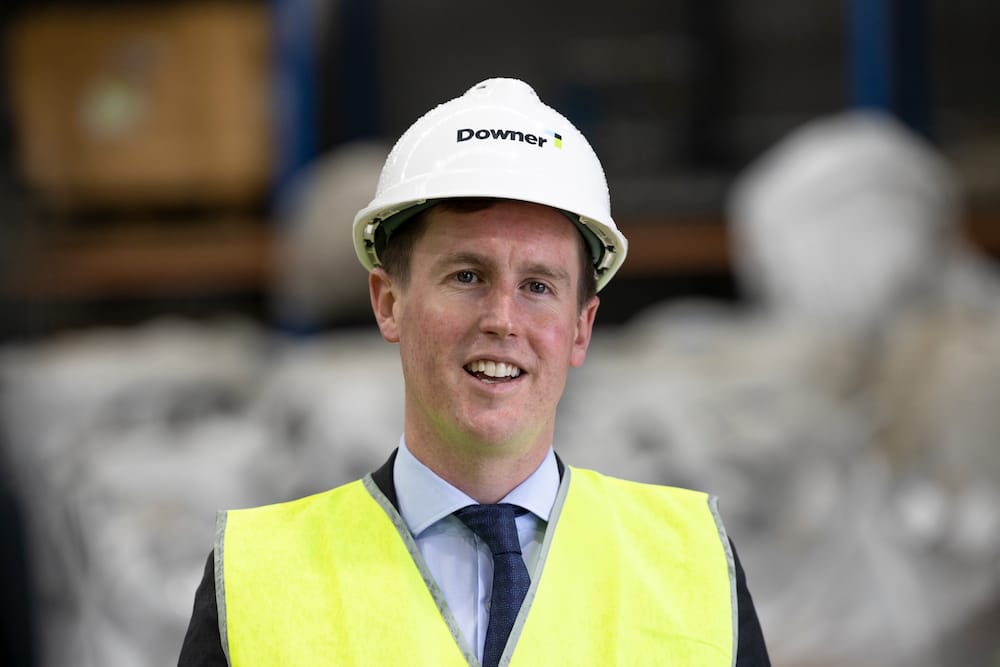In 2022, the ACT Government introduced initiatives so residents could reduce, reuse, and recycle – contributing to the government’s long-term goal of making Canberra an even more sustainable, prosperous, and circular economy city.
This includes the release of the draft ACT Circular Economy Strategy, banning more single-use plastics, and opening the ACT’s first Container Deposit Scheme reverse vending machine.
“The ACT is on its way to being a thriving and equitable city that respects the limits of our planet,” Chris Steel, Minister for Transport and City Services, said.
The ACT’s draft Circular Economy Strategy, published in October, sets out the vision, strategic objectives, and focus areas to transform Canberra into a circular city, Mr Steel said.
“The circular economy provides opportunities for innovation, economic growth, and job creation,” Mr Steel said. “In the ACT, we already have great examples of the circular economy in action, such as Thor’s Hammer, Goterra, Soft Landing, Renewed Appliances, and Capital Brewing Co.”
In August, Greens MLA Jo Clay released a Circular Economy discussion paper, setting out how to achieve a system that has no waste, where everything becomes a resource used elsewhere in the circle. Canberra produces one million tonnes of waste every year – waste that pollutes the environment, squanders natural resources, and increases greenhouse gas emissions.
- Have your say on the ACT’s circular economy (27 October)
- ACT Greens: Circular economy vital for a sustainable future (11 October)
In July, the government banned single-use plastic straws (with exemptions for those who need them), cotton buds with plastic sticks, and all oxo-degradable plastics.
This follows the ban in 2021 of single-use plastic cutlery and drink stirrers, expanded polystyrene takeaway food and beverage containers, and plastic bags that are less than 35 microns in thickness.
Mr Steel said business and the community had embraced these changes.
“Many event organisers took on the challenge from the ACT Government to eliminate unnecessary single-use plastics in 2022. Over 20 events such as Enlighten Festival, Groovin the Moo, Floriade, and Spilt Milk have made the transition to more sustainable alternatives.”
Next year, the government might phase out single-use plastic takeaway containers, single-use plastic plates and bowls, and heavyweight plastic shopping bags.
- Plastic straws will be banned from July (23 May)
- Takeaway containers and plastic bags to be banned in ACT (15 September)
- More major ACT events to go single-use plastic-free (8 March)
The ACT celebrated a milestone in reducing food waste to landfill, Mr Steel said: its city compost collection pilot, FOGO (Food Organics and Garden Organics), celebrated its first birthday in November. The scheme was piloted to around 5,000 households in Belconnen, Bruce, Cook, and Macquarie from November last year. By turning household scraps, and food and garden waste into nutrient-rich compost, the scheme reduces methane gas generated from landfill.
- FOGO waste collection begins in Belconnen (22 November 2021)
“The bulky waste collection service continued to be valuable for Canberra residents and the community,” Mr Steel said.
The government rolled out the service across Canberra in 2021, abandoning plans for a staggered four-year rollout.
“We saw a 39 per cent recovery rate, with items such as furniture provided to people in need through charities like GIVIT, the Salvation Army, and Vinnies,” Mr Steel said.
- Steel announces early rollout of free bulky waste collections across ACT (5 February 2021)
- Bulky waste collection now available in Belconnen (7 April 2021)
The ACT Government also supported recycling initiatives such as Soft Landing, a national social enterprise that collects mattresses for recycling, Mr Steel said. They recycle up to 75 per cent of all mattress components. In 2021-22, they received 43,742 mattresses – which were broken down, separated into their different components, and upcycled.
“The ACT Container Deposit Scheme continued to make an impact with ACT residents,” Mr Steel said. More than 57 million containers were redeemed through the network in 2021-22 – an increase of 1.35 million containers from 2020-21. Also in 2021-22, the redemption rate was a record 75 per cent – meaning three out of four drinks containers sold made their way into the scheme. Since the scheme began in June 2018, more than 366 million containers have been recycled.
Next year, the government intends to expand the scheme to include wine bottles, spirit bottles, and cordial bottles.
- Turn your trash into cash at ACT’s solar reverse vending machine (19 January)
- Majority of Canberrans using Container Deposit Scheme (31 March)
- Container your excitement: ACT deposit scheme to expand (7 November)
Recycle even more during the festive season
Mr Steel reminded Canberrans to use the free recycling facilities across Canberra for any excess packaging during the holiday period.
The Recycling Drop Off Centres located in Tuggeranong, Phillip, Gungahlin, Mitchell, and Belconnen are open 24 hours a day, seven days a week, including New Year’s Day. They accept any items normally put in the yellow recycling bin:
• oversized cardboard boxes;
• glass bottles and jars;
• aluminium and steel cans;
• plastic bottles and containers.
Household green waste can be dropped drop off for free at Mugga Lane Resource Management Centre (fees apply for branches or trees larger than 20cm in diameter and/or 2m in length) or for free at Canberra Sand and Gravel on Parkwood Road in Belconnen.
Most wrapping paper can be recycled in your yellow bin, but look out for any cellophane paper or foil-styled gift-wrapping paper made from plastic. These soft plastics cannot be recycled, and need to be put in the landfill bin.
There are no changes to bin collections, as Christmas Day and New Year’s Day both fall on Sundays this year. Services will continue as usual.
Mugga Lane and Mitchell Resource Management Centres were closed yesterday (Christmas Day), but will now be open every day between 7.30am and 5.00pm.
For more information on correctly disposing of your post-Christmas waste, visit https://www.cityservices.act.gov.au/recyclopaedia.



